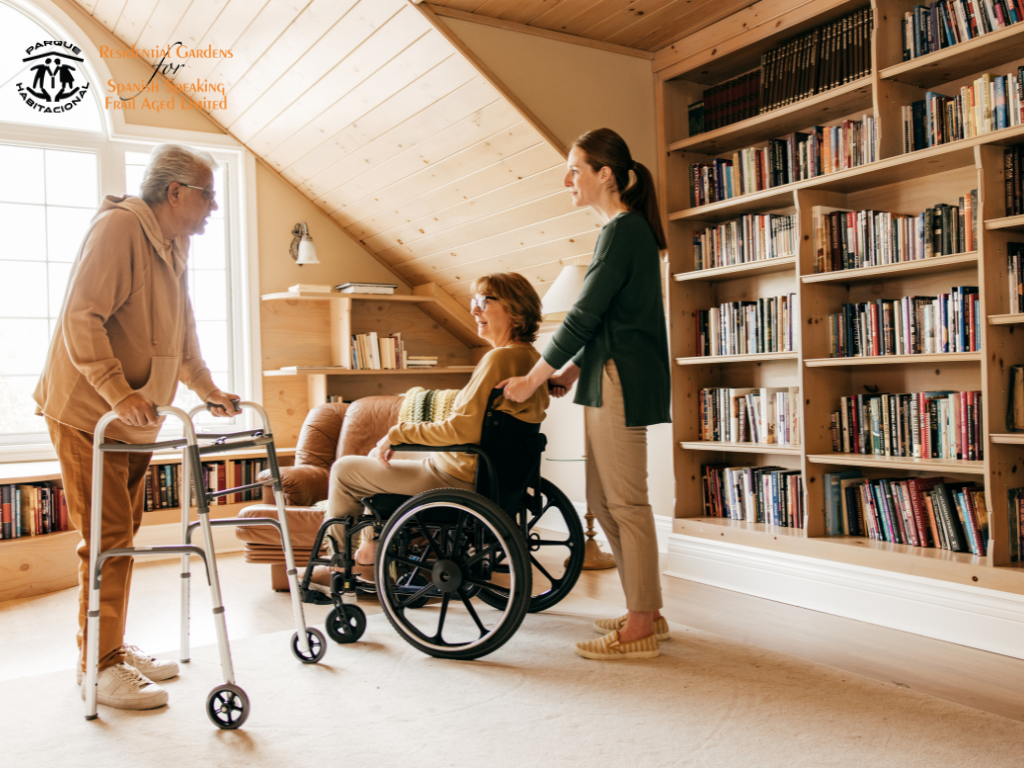In high care settings, where patients face complex and often chronic medical conditions, the importance of psychological and emotional support cannot be overstated. This aspect of care is crucial not only for the patients themselves but also for their families, who are often significantly impacted by the challenges of high care situations. Emotional support goes hand in hand with medical treatment, addressing the holistic needs of patients and aiding in their overall wellbeing and recovery process. Understanding the emotional impact on both patients and their families is key to providing comprehensive and empathetic care.
Psychological Needs of High Care Patients
Challenges Faced by Patients in High Care
Patients in high care settings commonly experience a range of emotional and psychological challenges. These may include feelings of fear, anxiety, depression, loss of autonomy, and uncertainty about the future. The physical limitations and continuous medical interventions often contribute to a sense of loss of control over their lives, leading to emotional distress. Recognizing these challenges is the first step in addressing the psychological needs of these patients.
Approaches to Providing Emotional Support
Healthcare providers play a vital role in offering emotional support to high care patients. This can be achieved through:
- Empathetic Communication: Engaging in regular, empathetic communication to understand the patient’s fears and concerns.
- Psychological Reassurance: Providing reassurance and psychological comfort through informed and compassionate care.
- Encouraging Family Involvement: Facilitating family involvement in the care process, which can provide significant emotional support to the patient.
Role of Mental Health Professionals in High Care

Integration of Mental Health Services in High Care Settings
Mental health professionals are integral to the high care team, offering specialized support and managing the psychological aspects of patient care. Their involvement ensures that the mental and emotional wellbeing of patients is addressed alongside their physical health needs. They work collaboratively with medical professionals to create a holistic care plan that encompasses all aspects of the patient’s health.
Specialized Therapies and Interventions
In high care settings, mental health professionals may employ various therapies and interventions, including:
- Cognitive Behavioral Therapy (CBT): To help patients manage anxiety, depression, or other mental health conditions.
- Counseling and Psychotherapy: Providing a safe space for patients to express their feelings and work through emotional challenges.
- Mindfulness and Relaxation Techniques: Aiding in stress reduction and promoting a sense of calm and well-being.
Family Involvement and Support

Importance of Family Involvement in High Care
Family involvement is a critical component of high care. The presence and support of family members can significantly impact the emotional and psychological well-being of patients. Families provide a sense of familiarity, comfort, and emotional grounding, which can be particularly reassuring in a high care setting. Additionally, family members often understand the patient’s preferences and history better than anyone else, providing invaluable insights to healthcare providers for personalized care.
Supporting Family Members of High Care Patients
Healthcare providers can play a crucial role in supporting the families of high care patients. This support might include:
- Regular Updates and Information Sharing: Keeping families informed about the patient’s condition and treatment plans.
- Guidance on Caregiving: Offering advice and training on how to care for their loved one, if appropriate.
- Access to Support Services: Directing families to counseling, support groups, or other community resources that can assist them in coping with their loved one’s high care needs.
Communication Strategies in High Care

Effective Communication with High Care Patients
Effective communication with high care patients involves:
- Using Clear and Simple Language: Making sure information is understandable.
- Listening Actively: Paying attention to the patient’s concerns and responding empathetically.
- Regular Check-ins: Frequently communicating with the patient to gauge their comfort and emotional state.
Fostering Open Communication with Families
Open communication with families of high care patients is vital. It includes:
- Transparent Discussions: Being honest and clear about the patient’s condition and prognosis.
- Inclusive Decision-Making: Involving family members in treatment decisions where appropriate.
- Empathy and Understanding: Recognizing and addressing the emotional needs of the family.
Coping Strategies for Patients and Families

Coping Mechanisms for High Care Patients
For patients in high care, coping mechanisms might include:
- Mindfulness and Relaxation Techniques: Utilizing methods like guided imagery or deep breathing exercises to manage stress.
- Engagement in Activities: Encouraging participation in suitable activities that can provide distraction and a sense of normalcy.
Resources and Support for Families
Families of high care patients can be directed to various resources for support, such as:
- Support Groups: Connecting with others who are in similar situations.
- Counseling Services: Accessing professional help to manage the emotional and psychological burden.
- Educational Resources: Providing information on the patient’s condition and how to handle care needs effectively.
Community and Social Support Systems
Utilizing Community Resources for Emotional Support
In the realm of high care, community resources play a vital role in providing additional emotional support to both patients and their families. These resources can vary widely, from local support groups and community centers offering counseling services, to social clubs and organizations focused on specific health conditions. Accessing these resources often starts with healthcare providers or social workers who can guide patients and families to the appropriate services. Public libraries, community bulletin boards, and online platforms are also valuable for finding local support networks. These resources not only provide emotional support but also create a sense of community and belonging, which can be incredibly beneficial in managing the challenges of high care.
Building a Support Network for Ongoing Care
Creating a support network is essential, particularly in long-term high care scenarios. This network can include friends, family members, healthcare professionals, and even volunteers from the community. The key is to establish a group of individuals who can offer various types of support, ranging from emotional and social to practical assistance with daily tasks. Building such a network requires open communication about the patient’s needs and willingness to accept help. Regular meetings or check-ins can help maintain the network’s strength and effectiveness. In addition, leveraging online tools and platforms can keep the network connected and informed, facilitating easier coordination of care and support activities.
Conclusion
The importance of psychological and emotional support in high care cannot be overstated. High care settings, by their nature, can be incredibly challenging for both patients and their families, making support systems crucial for maintaining mental and emotional well-being. A holistic approach to care, one that includes attention to mental health and emotional needs alongside physical health, is essential for effective high care management. This approach involves not only healthcare providers but also family members, friends, and the wider community. Together, they form a comprehensive support network that can significantly enhance the quality of life for those in high care, ensuring their needs are met in a compassionate and empathetic manner.



